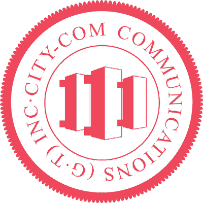Communication is Key. Our telecom solutions enable our clients to focus on their business, without worrying about being out of touch.
Telephone services are a fundamental tool for businesses of all sizes. There is a wide range of telephone services available, each with its own unique features and advantages. For most businesses, traditional landlines are a thing of the past, and business owners are investigating the various newer options that are now available.
As internet and mobile phone technologies lead to a rise of new phone systems and solutions, learn more about what choices businesses have for their telecommunications, and which might be right for your company.
Business Phone System Options
There are few common types of phone systems that are replacing landlines.

Voice over Internet Protocol (VoIP) Phone System
VoIP uses the internet to transmit voice conversations. Instead of relying on traditional phone lines, VoIP converts spoken words into digital data packets, which are then sent over the internet to the recipient. VoIP services are particularly beneficial for startups, remote teams, or businesses looking to cut costs and embrace flexibility.
One of the key advantages of VoIP is cost savings. Traditional phone lines can be expensive to install and maintain. VoIP eliminates the need for a dedicated phone line, significantly reducing communication costs. Additionally, VoIP allows for seamless scalability. As your business grows, you can easily add more lines or features without the hassle of installing new physical lines. This flexibility is especially valuable for remote teams that may be scattered across the globe.
VoIP offers several advanced features. Video conferencing, voicemail to email, call forwarding, and interactive voice response systems are just a few options. These features can significantly enhance your business' ability to communicate.

Cloud Phone Systems
Cloud phone systems use the internet to provide an array of features. Virtual phones are primarily used by businesses and are a specific type of VoIP service that provides phone-like features such as call routing and voicemail.
These systems are perfect for small businesses and startups that want the same communications experience for employees and customers that their larger counterparts are able to offer. Features such as automated call routing, voicemail, and virtual phone numbers make it appear as if the small business has a dedicated phone system, creating a more organized, polished and reliable impression for customers.
Automated call routing is a popular feature which ensures that incoming calls are directed to the right department or employee, enhancing customer service and efficiency. Voicemail features and the ability to set up virtual phone numbers for different regions or purposes further contribute to the flexibility and professionalism of a company.
One of the key advantages of virtual phone systems is their ability to provide these professional phone features without the need for physical phone hardware.
In addition, with Cloud phone services, a third party manages and maintains the system in the cloud. This means you don't need on-premises equipment or IT staff to keep the system running smoothly. The burden of system updates, patches, and troubleshooting is eliminated. This option is ideal for small to medium-sized businesses looking to harness the benefits of VoIP without the need for in-house management.
Cloud phone services are known for robust security measures. Providers typically invest heavily in security to protect their clients' data and ensure that communication remains private and secure.
A Cloud phone service, such as the 8x8 phone system, is highly scalable; as your business expands, you can easily add more lines and features, so you can adapt to changing communication needs.

PBX (Private Branch Exchange)
For medium to large enterprises with complex communication needs and multiple departments, a PBX system is often recommended. A PBX system functions as a private telephone network within a business, similar to an internal switchboard.
PBX efficiently manages all incoming and outgoing calls, ensuring that they are directed to the appropriate department or extension. This level of call management is essential for large organizations where communication flow can be complex and intense.
PBX systems offer features like voicemail and call forwarding, enhancing the overall communication experience. Call forwarding ensures that no call is missed, and voicemail allows employees to receive and manage messages effectively. E-MetroTel's UCx line is designed to replace or integrate with traditional PBX systems, allowing businesses to leverage VoIP technology and unified communications features while meeting the needs of a PBX system.
In larger enterprises, the seamless integration of all these communication features streamlines operations and boosts productivity. It also ensures that customers experience a professional and well-organized communication process.
Mobile Phone Services
Mobile phone services leverage smartphones and tablets for business communication, relying on cellular networks to facilitate voice calls, text messages, and data access for work-related purposes. This is ideal for businesses with mobile employees, such as sales representatives or field service personnel.
Mobile phone services offer the flexibility of staying connected while on the move. Employees can communicate with colleagues, clients, and partners from virtually anywhere, enhancing productivity and responsiveness. This is particularly beneficial for businesses with a mobile workforce where being tethered to a physical location is not an option.
Many companies are exploring ways to integrate personal and business phones effectively and securely into business communication systems. This ensures that employees can use a single device for both personal and professional purposes, offering convenience and simplifying communication management.

Unified Communications (UC)
Unified Communications (UC) systems, such as the NEC Univerge Blue, is the ideal solution for companies that require comprehensive communication tools to enhance collaboration and productivity. UC platforms bring together various communication tools such as voice calls, video chats, instant messaging, and email into a single, integrated system.
Communications that were previously distinct and separated can now be connected. A voicemail can be forwarded through email and saved, and so on.
By consolidating multiple communication channels into a single platform, employees can seamlessly switch between different modes of communication, making it easier to connect with colleagues and clients. This results in improved efficiency and collaboration.
Moreover, UC systems often include advanced features like screen sharing, file sharing, and document collaboration. These tools further empower teams to work together effectively, regardless of physical location.
UC systems can integrate with other business software, too, for added functionality.
Converting to Cloud Systems
Some companies wish to remain with dependable, traditional landlines, at least temporarily, including those who do not have a sufficient data network infrastructure to adopt VoIP. To stay competitive, these businesses can upgrade with modern technologies, such as hybrid systems, VoIP gateways and digital phones, without making a complete shift to the cloud. This allows companies to adapt at their own pace.
City-Com Communications (G.T.) Inc. offers comprehensive telecom solutions tailored to your business needs. Our experienced experts specialize in designing and implementing business phone systems, ensuring a seamless transition. Whether you opt for digital, onsite VoIP, or cloud-based systems, we have superior solutions from NEC Univerge, E-MetroTel, 8x8, and Mitel to keep you connected, and we can guide you on which solutions are best for your needs.
We handle installation and provide thorough staff training for your new business phone system. Trust City-Com for efficient, cutting-edge communication solutions.




